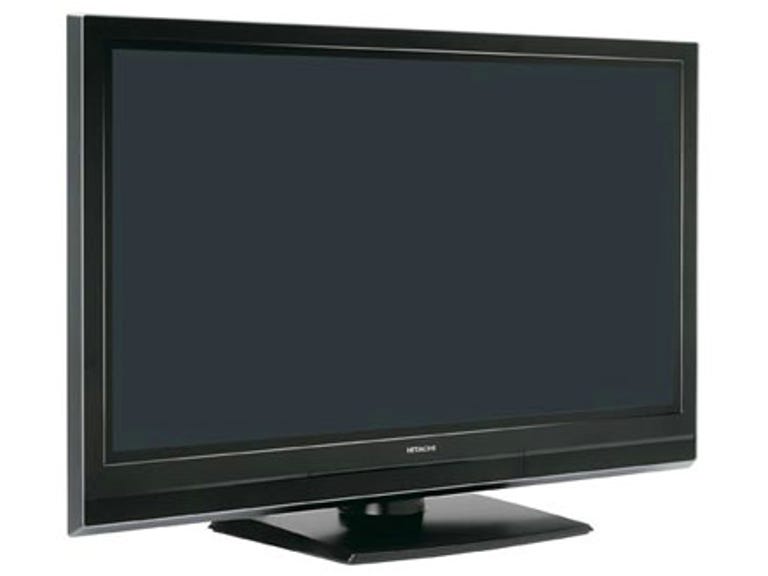 Why You Can Trust CNET
Why You Can Trust CNET Hitachi P50T01U review: Hitachi P50T01U
Natural colour tones, subtle details to dark backdrops and excellent connectivity are the stand out features with the Hitachi P50T01U 50-inch plasma screen. In addition, the TV is well priced and the details in every last tiny texture are fine when viewing pristine HD fodder
With its unusually high -- not to mention strange -- pixel count of 1,280x1,080 pixels plus a superbly promising 10,000:1 claimed contrast ratio, Hitachi's latest plasma TV, the P50T01U, sports more potential than you'd expect of a 50-inch screen costing around £1,000. But is that potential realised?
The Good
The Bad
The Bottom Line
Strengths
For such a cheap TV, the P50T01U's feature count is enormous. The ball starts rolling with that resolution we mentioned earlier, which has as many horizontal lines as a 'Full HD' screen -- even though the number of vertical lines isn't high enough to garner the TV's official Full HD status.
The P50T01U's connectivity is a cut above, too, since the usual twin HDMIs, component video and PC jacks are joined by an SD card slot and USB port for viewing digital photos.
Heading into the P50T01U's onscreen features unearths an almost bewilderingly extensive array of tricks. Some of them -- such as colour transient improvement -- is probably way too technical for most people to bother with. Yet even if you don't use them all, it's nice to know Hitachi cares enough to have put them there.
Two other features tickling our fancy are Hitachi's Picture Master Full HD image processing, which has delivered some great results on the brand's LCD TVs and also the support for 1080p in its 50Hz and 60Hz configurations.
In performance terms, the P50T01U's strongest suit is its fine detailing, as it confidently portrays every last tiny texture in pristine HD fodder, such as Gears of War on the Xbox 360, without a trace of grain or dot crawl noise.
Also impressive is its portrayal of subtle details in dark backdrops, while its colours enjoy some of the most natural tones we've seen on a flat TV.
Weaknesses
Although the P50T01U has many features, it's slightly disappointing to find that the set doesn't support the 1080p/24fps format now output by a few HD disc players.
But sadly, the bulk of our problems with the P50T01U concern its picture performance. The toughest thing to accept is the set's surprisingly unimpressive black level, which bottoms out into grey considerably earlier than its best rivals. This is hardly what you want when you're trying to spot the monster lurking in a dark corner during Ridley Scott's Alien.
It's also depressing to see dithering noise over people's faces as they move across the screen, harking back to an old plasma problem which most other brands seem to have more or less completely cracked now.
Next, the picture generally doesn't seem as vibrant and bright as those of some current rival plasmas. And finally, standard definition images tend to be afflicted with some video noise, despite the best efforts of the Picture Master Full HD system.
Conclusion
Once upon a time, Hitachi made pretty much the only really affordable plasma TVs worth bothering with. But with the P50T01U, costing around £1,000, there's just no avoiding the fact that the brand doesn't seem to be advancing its plasma technology as fast as most rivals. Time to get more people in the Research & Development labs pronto, wethinks.
Edited by Jason Jenkins
Additional editing by Jon Squire
